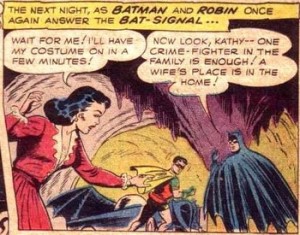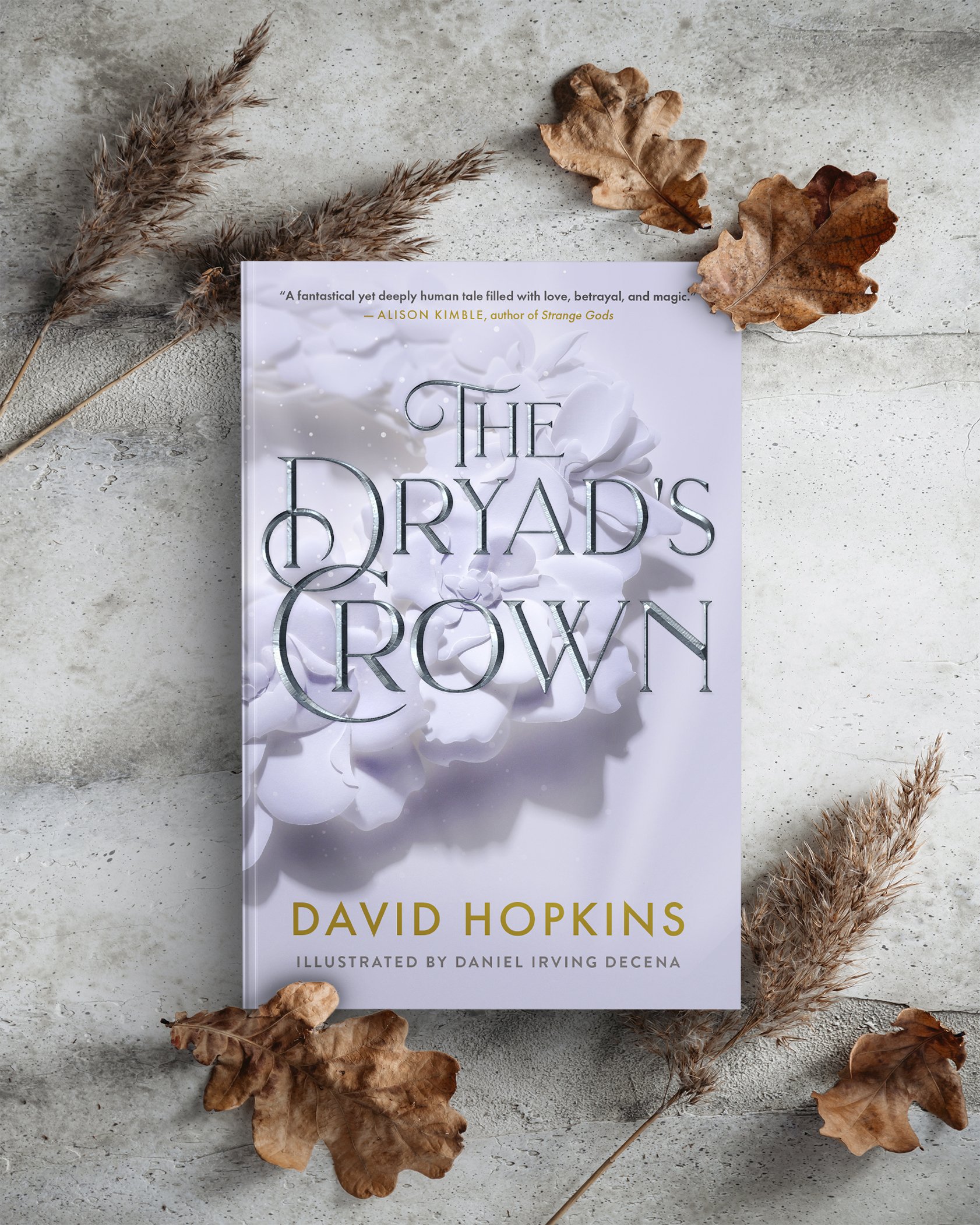 I've always considered myself a feminist.
As someone who makes up stuff out of thin air, I'm concerned with how I portray women in my stories -- to do so in a way that is honest and fair and responsible, to create stories that offer compelling characters, both male and female. I want good stories, and I believe this is EASIER to accomplish when you approach narratives as an intelligent, compassionate human being.
I've always considered myself a feminist.
As someone who makes up stuff out of thin air, I'm concerned with how I portray women in my stories -- to do so in a way that is honest and fair and responsible, to create stories that offer compelling characters, both male and female. I want good stories, and I believe this is EASIER to accomplish when you approach narratives as an intelligent, compassionate human being.
However, having been raised on a steady diet of male-oriented genre fiction, a writer can fall into one of the many tired, sexist tropes that besiege modern storytelling: damsel in distress, stay in the kitchen, double standards, slut shaming, and many more. These tropes exist because of lazy one-dimensional writing. Writers use the female characters to merely support the male characters.
Out of curiousity, I wanted to see how I fared against the Bechdel Test. What is the Bechdel Test, you say? To quote Ashe Cantrell at FilmSchoolRejects.com:
"The Bechdel Test, if you’re not familiar with it, is a benchmark for movies developed by Alison Bechdel in 1985. For a movie to pass The Bechdel Test, it must contain just one thing - a scene in which two or more named female characters have a conversation (that is, back and forth dialogue) about anything at all besides men. Anything, even if it’s something stereotypically feminine, like shopping or shoes. It could be about dog poo. It doesn’t matter."
After a quick read through my comics, here's how I stand.
Lengthy projects -->
Astronaut Dad: PASSED Karma Incorporated: PASSED Emily Edison: PASSED Antigone: FAILED (Technically, Sophocles failed. It's adapted from his original play. There's Antigone and Ismene, but they only talk about their brother Polynices.) We've Never Met: PASSED Souvenir of Dallas: PASSED (Barely, these one-pagers don't have much in the way of conversation. Plus, since these one-pagers center around the misadventures of Fictional Paul and Fictional David, there aren't many women. However, one comic "Real Housewives of Dallas" does fit the criteria.) Some Other Day: PASSED One Night Stand: PASSED Mine All Mine: PASSED
88 percent.
Short stories -->
"Productivity" from Boo! Halloween Stories #1: FAILED (There's only two characters in this short story, a man and a woman.) "From Geek to Freak to Emergency Room" from Jam! Tales from the World of Roller Derby: PASSED "Judge Roy Bean" from Outlaw Territory Vol. 3: FAILED (Four characters in the story, all men.) "50 Miles to Marfa" from PopGun Vol. 3: FAILED (Three characters, only one girl.) "Virginia 1939" from Bradley Boys Adventure Magazine: FAILED (Only one woman in the short story, on the last panel, and she doesn't say anything.) "Betrayal of the Man-Eating Cow Clones" from The Tick's 20th Anniversary Special Edition: FAILED (One page story, no female characters.) "The Stranger Waits for Me" from Western Tales of Terror #2: FAILED (No conversations in this story. Mostly the narrator.) "CFI: Silent Forest" from Silent Forest Television Parody Special: FAILED "The Sparrow" from Dead@17 Rough Cut Vol. 2: FAILED (There's no dialogue in this story at all.) "Fight to Live" from Dead@17 Rough Cut Vol. 1: FAILED (Only one female character, she doesn't talk. Too busy being resurrected.) "Siren Song" from Dark Horrors Anthology: FAILED "Fighting David Parrot" FAILED "DangerZone Dave vs. the Realistic Dolphin" FAILED "The Happy Bullets Present an Illustrated Companion Pamphlet for the Album Hydropanic at the Natatorium" FAILED
7 percent. Clearly, my short stories don't stand up as well as my longer stories/projects.
I don't know if the Bechel Test exonerates or condemns. But it does create an interesting starting point for a conversation about gender in fiction. (For instance, the original Star Wars trilogy fails the Bechdel Test miserably. There are only three named female characters with speaking roles--Leia, Aunt Beru, and Mon Mothma.)
I would encourage other writers to test themselves. But more importantly, I encourage us all to go beyond this simple, low-bar benchmark. No more lazy stereotypes. No more sexist tropes. Simply creating a "strong, female character" is not the same as creating a female character worth caring about. I'm confident that my best work is ahead of me, and you'll notice it, because the characters will breathe real air. They won't come out of the box as pre-packaged genre fiction crap. But in order to do that, I have to think intelligently about how I approach my characters.
